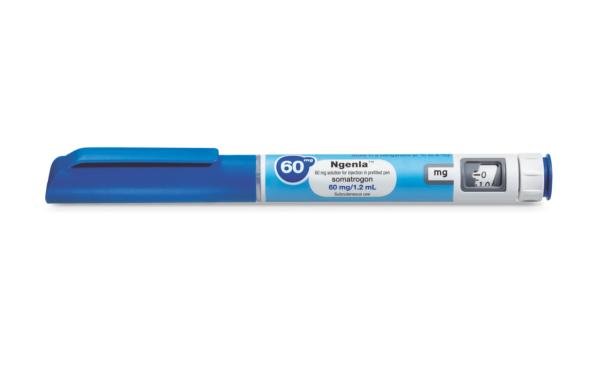Somatrogon and Alcohol/Food Interactions
There are 2 alcohol/food/lifestyle interactions with somatrogon.
Somatrogon Obesity
Major Potential Hazard, Moderate plausibility
human growth hormone - Prader-Willi Syndrome
Somatropin and somatrogon is contraindicated in patients with Prader-Willi Syndrome who are severely obese, have a history of upper airway obstruction or sleep apnea, or have severe respiratory impairment. There have been reports of sudden death when somatropin was used in such patients.
Somatrogon Obesity
Moderate Potential Hazard, Moderate plausibility
somatrogon - diabetes mellitus
Treatment with growth hormone may decrease insulin sensitivity, inducing a state of insulin resistance and hyperglycemia, especially at higher doses. New onset type 2 diabetes mellitus (DM) or worsened glycemic control in patients with undiagnosed pre-diabetes or DM has been reported in patients receiving growth hormone. Monitor glucose levels in all patients during therapy with somatrogon, especially in those with who have glucose intolerance, or additional risk factors for diabetes (e.g., obesity, Turner syndrome, family history). Initiation of somatrogon in patients who have type 1 or 2 diabetes mellitus may require dose adjustment of anti-diabetic therapy.
Switch to professional interaction data
Somatrogon drug interactions
There are 437 drug interactions with somatrogon.
Somatrogon disease interactions
There are 8 disease interactions with somatrogon which include:
- active malignancy
- acute critical illness
- diabetic retinopathy
- Prader-Willi Syndrome
- intracranial hypertension
- scoliosis
- diabetes mellitus
- Turner syndrome
More about somatrogon
- somatrogon consumer information
- Check interactions
- Compare alternatives
- Side effects
- Dosage information
- During pregnancy
- Drug class: growth hormones
- En español
Related treatment guides
Drug Interaction Classification
| Highly clinically significant. Avoid combinations; the risk of the interaction outweighs the benefit. | |
| Moderately clinically significant. Usually avoid combinations; use it only under special circumstances. | |
| Minimally clinically significant. Minimize risk; assess risk and consider an alternative drug, take steps to circumvent the interaction risk and/or institute a monitoring plan. | |
| No interaction information available. |
See also:
Further information
Always consult your healthcare provider to ensure the information displayed on this page applies to your personal circumstances.


